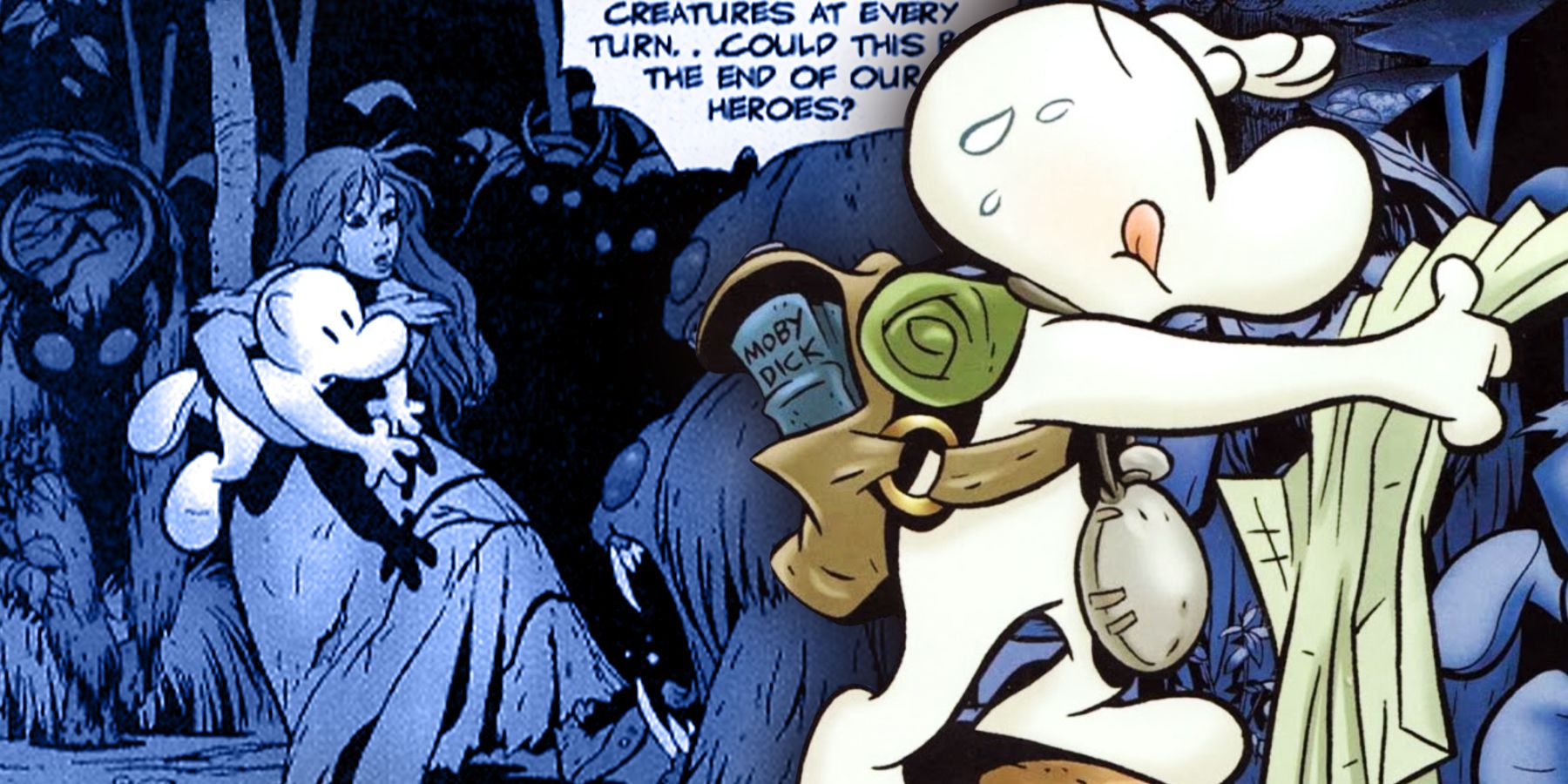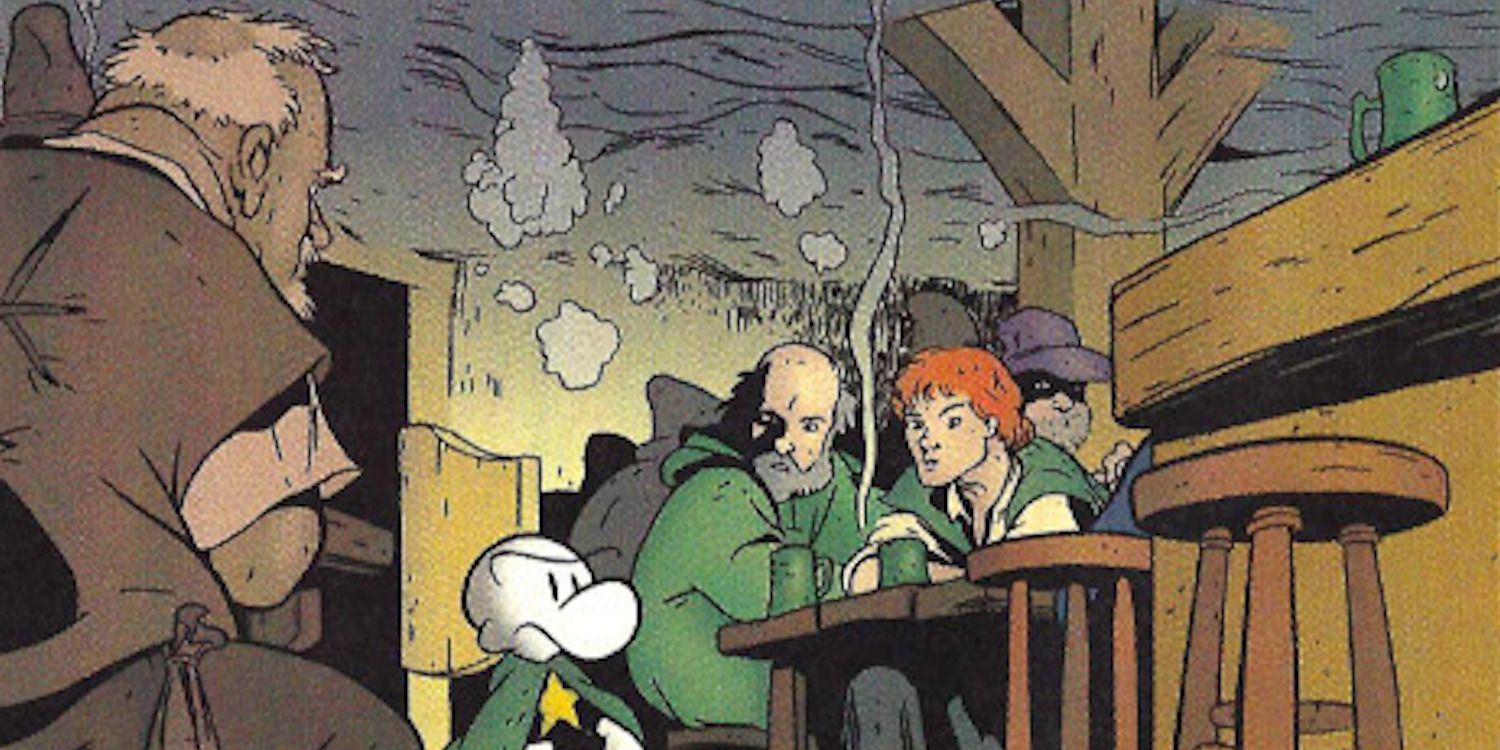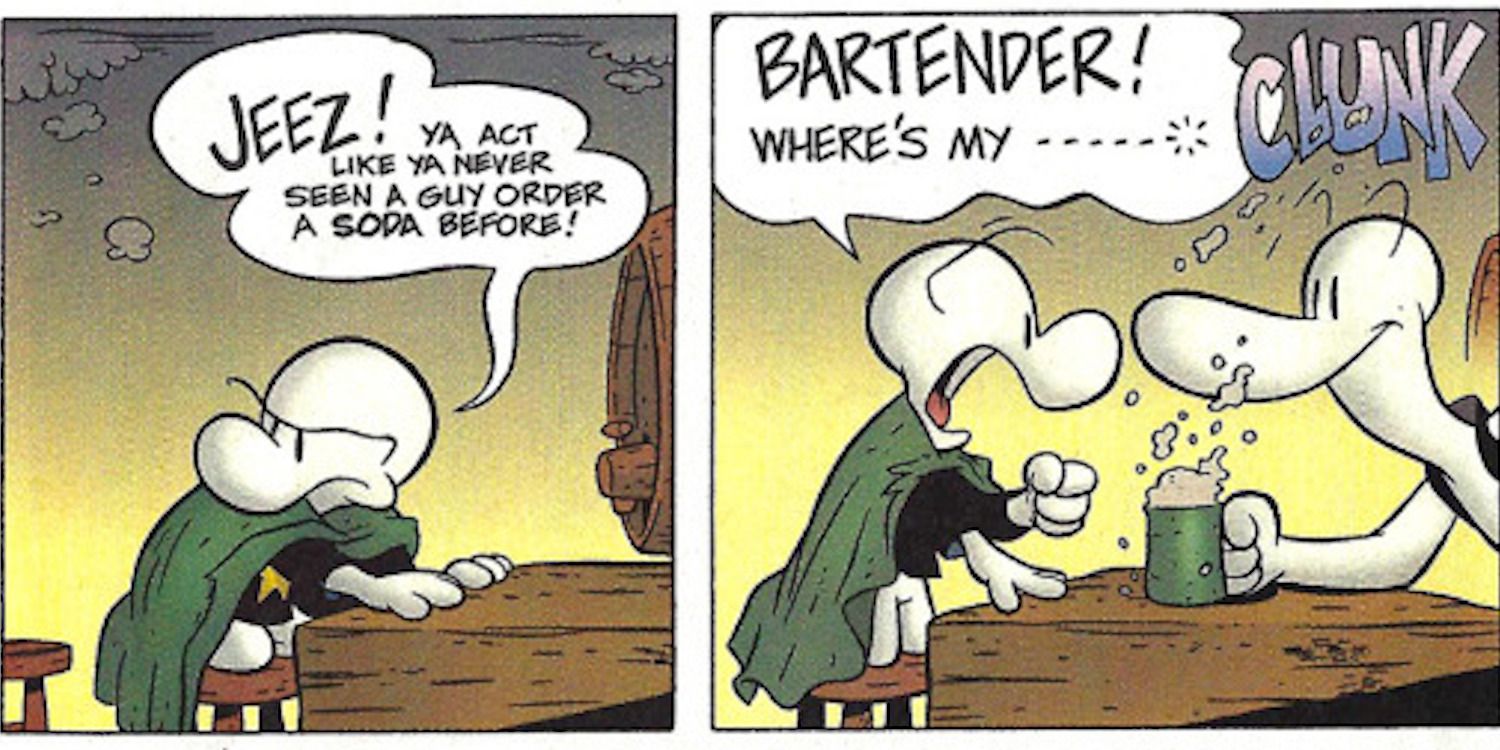Created by Jeff Smith and serialized in the 1990s, Bone is one of the most iconic cult-classic comics ever made. A clever blend of cartoonish comedy with epic high fantasy á la Lord of the Rings, Bone was a user-friendly entry into the world of 1990s independent comics, especially for young readers. It's no wonder that the first issues of Bone, serialized as Out From Boneville, depicting the funny Bone cousins' arrival in the dangerous and magical world of the Valley, got featured billing in the now retired Disney Adventures magazine.
Printed in digest form, with less than ten pages per monthly issue, and fully colored in contrast to the original black and white publication, this iteration of Bone was instrumental in introducing an entire young generation to comics and genre-breaking storytelling. However, exposure came at a cost of censorship. Many concerned parents and editors took umbrage with the original comic's more adult themes and content, in particular the smoking and drinking. The hero Fone Bone's not-so-secret crush on the human lead, Thorn, was also a point of contention, with its subtle but mischievous innuendo. A compromise was made as certain elements were drawn over or cut out altogether, leaving a more abridged and sanitized version for the young readers.
Disney Removed Smoking, Drinking, and Innuendo From Bone
All references to drinking and smoking were removed from the Disney Adventures version of Bone. This was especially noticeable given that one of the three Bones, Smiley, always carries his trademark prop cigar with him. This change doesn't detract from Smiley's character, who still stands out as the tallest of the Bones, though it does make some of his body language, normally accompanied by said prop cigar, all the more awkward and silly. However, to adult eyes, the absence of cigars and smoking becomes obvious in the tavern scenes. There, smoke and puffy clouds linger in the air all around the patrons, without explanation.
Alcohol is replaced with "soda" however the presence of a bar and tavern in a fantastical, pseudo Medieval setting all but betrays its true identity. Kids aren't fooled easily. Many a young reader could have easily made a connection between a tavern, bar, drinking and smoking. Many of Bone's media contemporaries in the 90s, aimed at younger or at least general audiences, featured these adult activities, subtly or not so subtly. Even Disney's animated film Beauty and the Beast made no secret the obvious consumption of alcohol in its iconic tavern sequence. However, drinking, smoking and innuendo were insignificant to the meat of Bone and its narrative, which was all about peril, intrigue and self-discovery.
Disney's Censorship Was Awkward But Didn't Detract From The Story
The omissions of cigars and the references to alcohol were suspect in places, but it's unlikely those young readers discovering the original, uncensored version of Bone years later would have been particularly horrified at seeing what was omitted. Many could have already made the connection with the smoking and alcohol scenes, especially in the tavern years before. Smiley Bone's trademark prop cigar would have been a surprise. It could possibly see the perception of his character changed somewhat, either positively or negatively As for the innuendo between Fone Bone and Thorn, it was so subtle had it been included, most likely would have gone over kids' heads.
In the end, these changes did little to truly affect the quality of the story or a young reader's perceptions. In fact, they probably did more to assuage the nerves of overanxious adults than protect the innocence of the youth. These young readers were far more invested in the actual story to even take notice, let alone care about surface details. But if these were the changes absolutely necessary to introduce a generation to one of the greatest contemporary comic epics ever written, then perhaps they did serve a purpose in the end.



